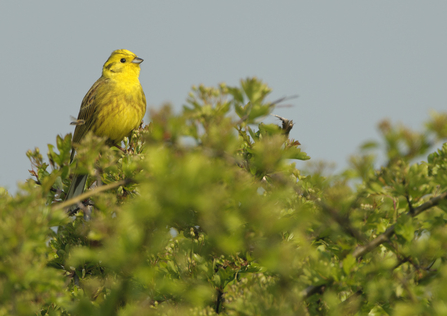Today, leading wildlife organisations, including Devon Wildlife Trust, publish a landmark State of Nature 2023 report. It shows that nature is continuing to decline at an alarming rate across the UK, which is already one of the most nature-depleted countries in the world.
The State of Nature 2023 report shows:
- One in six species is now at risk of being lost from Great Britain
- The wildlife studied has, on average, declined by 19% since monitoring began in 1970
- Most important habitats are in poor condition, though restoration projects have clear benefits for nature, people and adapting to climate change
People’s concern about nature loss, climate change and degraded wild places is a significant voting issue. The Wildlife Trusts are calling on politicians of all parties to commit to an ambitious programme of policies to support nature’s recovery.

